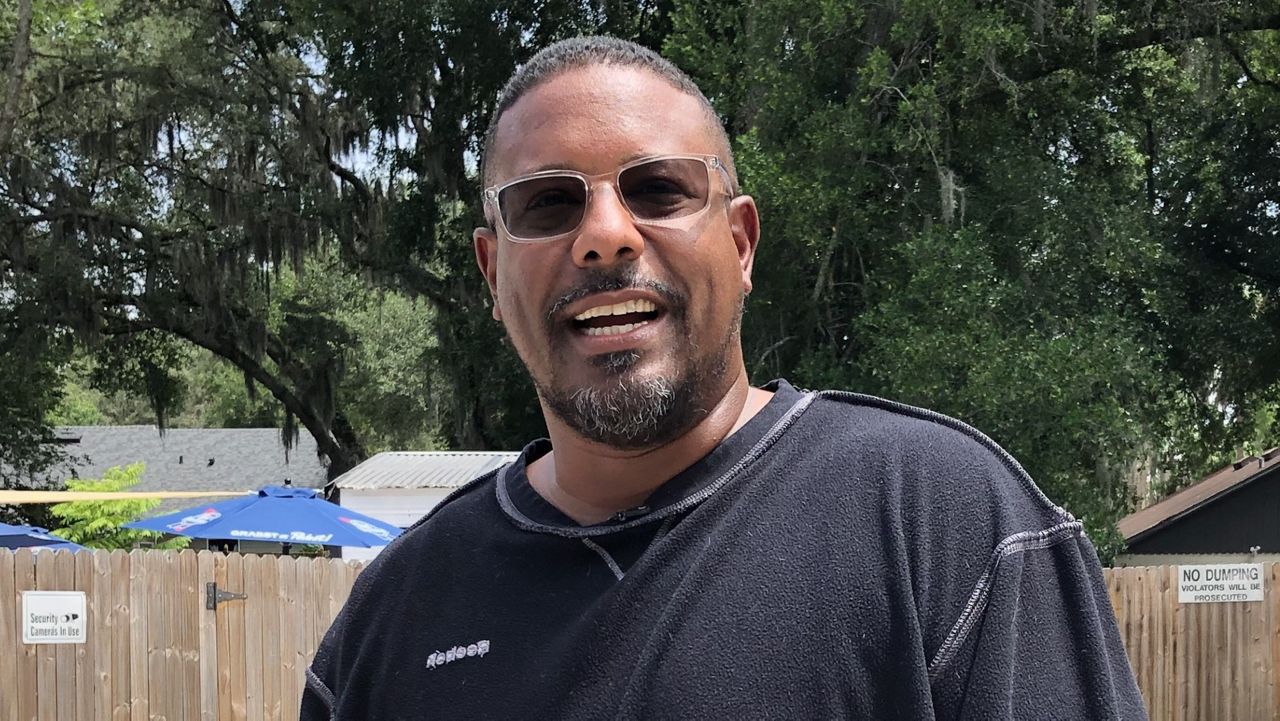
Organizers behind the drive to place three separate citizen ballot initiatives on the 2022 ballot that would expand voter registration efforts say that they’re not naïve about the formidable challenges ahead of them, but contend that they’ll have the financial resources to make it happen.
What You Need To Know
- People Over Profits, the ACLU of Florida and the Florida Alliance kicked off their campaign last week
- It would allow people to register to vote on Election Day and during early voting hours. Currently, Floridians must register to vote 29 days before an election
- If the measures make it to the ballot, they must get 60 percent support from the public
“Democracy’s worth it,” says Sean Shaw, the Florida Democratic Party attorney general nominee in 2018 and now the chairman of the group People Over Profits.
“What else is worth this hard effort we’re going to do?” he says. “This is a $15-$20 million effort. This is going to require tons of signatures. You get the signatures, you've still got to go before the Supreme Court and hope they don’t kill it. There’s a lot of hurdles here. It isn’t going to be easy, but certainly, democracy’s worth it.”
People Over Profits, the ACLU of Florida and the Florida Alliance kicked off their campaign last week to push for what they are labeling the “Fair Elections for Democracy Amendments.”
The measures call for:
1) Automatically registering eligible citizens to vote when doing business with the Dept. of Motor Vehicles unless they choose to opt-out.
2) Allow people to register to vote on Election Day and during early voting hours. Currently, Floridians must register to vote 29 days before an election.
3) Remove the requirement that people with felony convictions have to pay off outstanding court fines and fees before being eligible to vote. It essentially amends the 2019 Florida law that implemented 2018’s Amendment 4, which restored voting rights to those with felony convictions. The Legislature later amended the law and said that all ex-felons needed to pay off those outstanding legal financial obligations before they could vote. That measure was opposed by the ACLU of Florida and other groups, but was upheld by the 11th U.S. Circuit Court of Appeals last September.
“We believe that democracy is strongest when more eligible people participate,” says Micah Kubic, the executive director for the ACLU of Florida. “We believe that democracy is at its strongest when every voice can be heard. And these initiatives are about making sure that folks can have that freedom.”
The measures could be viewed as a response to the Florida Legislature’s recently passed election reform bill that put restrictions on voting by mail. Organizers behind the three amendments say if they all pass, it could result in one million new people added to the voting rolls.
“I don’t know if those are Democrats. I don’t know if they’re Republicans. I don’t know if they’re independents. I do know that they are Floridians who will get to vote, who aren’t voting right now,” says Shaw.
Kubic says it’s never been more challenging to get a constitutional amendment on the Florida ballot – much less three at one time.
The number of validated signatures to get on the ballot has grown from 766,200 over the last two election cycles to 891,589. That’s because the Constitution requires that the number of signatures needed equals 8 percent of the votes cast in the most recent presidential election, which in 2020 was 11,144,855.
Every proposed constitutional amendment in Florida must be reviewed by the Florida Supreme Court. They review the ballot wording and whether the proposals address single subjects. Previously the number of valid signatures required to trigger a review was 10 percent of the total required signatures.
Florida Lawmakers raised that requirement to 25% of the total required signatures last year, meaning organizers must have nearly 223,000 valid signatures.
Like Shaw, the ACLU’s Kubic says he’s confident that they can get the measures on the ballot, while acknowledging that “it is a huge logistical undertaking.”
“It requires an army of volunteers. It requires a signature gathering effort. It requires a lot of effort, time, energy and money to do it,” he says.
If the measures make it to the ballot, they must get 60 percent support from the public to make it into the Constitution.
The Link LonkJune 08, 2021 at 03:40AM
https://www.baynews9.com/fl/tampa/politics/2021/06/07/organizers--getting-initiatives-to-expand-voting-on-ballot-not-easy
Organizers say getting initiatives to expand voting on ballot won't be easy - Bay News 9
https://news.google.com/search?q=easy&hl=en-US&gl=US&ceid=US:en
No comments:
Post a Comment